How to Hire Security for an Event in Kenya
How to Hire Security for an Event in Kenya – A Practical Guide by Peak Audio
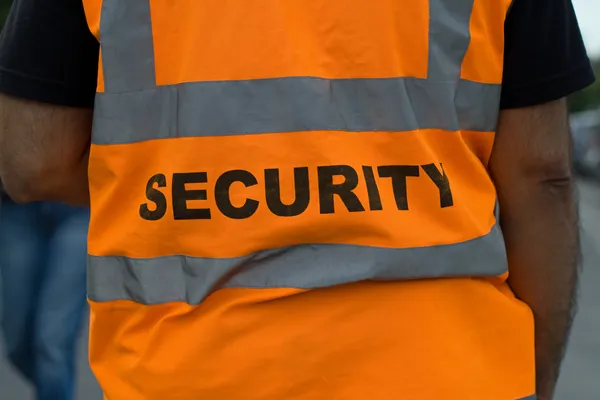
How to Hire Security for an Event in Kenya
In Kenya today, event security is no longer a luxury—it’s a necessity. Whether you’re organizing a corporate seminar, a public concert, or a private wedding, ensuring the safety of your guests and staff is critical. With rising cases of petty crime, unauthorized access, and even terrorism threats, having professional security personnel in place offers peace of mind and helps prevent disruptions.
There are several types of event security to consider, depending on your event’s scale and nature. Uniformed guards offer a strong visual deterrent and assist with crowd control, while plainclothes officers blend in and detect potential threats unnoticed. You may also need official police presence for high-risk or high-profile events, alongside private security teams trained in access control, surveillance, and emergency response.
Hiring the right security team brings multiple benefits. Beyond keeping guests safe, professional security helps enforce entry protocols, manage large crowds, protect assets such as equipment and cash, and respond swiftly to emergencies like medical incidents or fights. Ultimately, it’s about ensuring your event runs smoothly, allowing everyone to focus on what truly matters—the experience.
1. Types of Security Personnel for Events in Kenya
Kenya’s vibrant event landscape—ranging from corporate conferences and concerts to weddings and public forums—requires varying levels of security. Different event types come with unique risks, and understanding the roles and capabilities of each category of security personnel helps ensure safety, legal compliance, and a smooth event experience. Below is a detailed breakdown of the key security personnel available in Kenya for events.
1.1 Private Security Guards

How to Hire Security for an Event in Kenya
-
Duties: Crowd Control, Entry/Exit Monitoring, Perimeter Checks
Private guards serve as the first layer of physical security at most events. They manage attendee flow, inspect passes or tickets, and ensure restricted areas remain off-limits. They’re also responsible for controlling crowd behavior and responding to disturbances in real-time. -
Often from Licensed Security Firms
Most private guards are hired through reputable security companies like G4S, Wells Fargo, and Securex. These firms ensure guards are trained in access control, basic first aid, and incident response, and they often supply uniforms, communication gear, and supervisors for large-scale deployments. -
Venue Patrol and Property Protection
Guards may be assigned to specific zones such as parking areas, backstage sections, and equipment storage spaces. Their visibility discourages petty theft and helps enforce event rules like “no re-entry” or “no alcohol in certain areas.” -
Emergency Coordination and Guest Assistance
In addition to security, guards often assist guests with directions and help coordinate evacuations in case of emergencies. They work closely with venue managers and event organizers to relay information about incidents or potential hazards.
1.2 Police Officers for Events
-
Necessary for Large or High-Risk Events
For public gatherings, political rallies, or events with large crowds, a police presence is often mandatory. They’re especially crucial when the event includes dignitaries, politicians, or when there’s a risk of protest or civil unrest. -
Typically Coordinated Through Kenya Police Service with Permit Approval
Organizers must apply for police deployment through the local Officer Commanding Station (OCS). This often includes submitting an event notification, program details, estimated attendance, and a request for uniformed or undercover police presence. -
Armed Law Enforcement Authority
Unlike private guards, police officers have the legal mandate to arrest, detain, or disperse unruly crowds. They’re equipped with batons, firearms, radios, and sometimes riot control gear, offering a more robust line of defense in case of serious disruptions. -
Work in Tandem with Private Security Firms
It’s common to have a layered security plan where private security manages checkpoints and guest services, while police focus on public safety, law enforcement, and external crowd control, especially in open-access or urban events.
1.3 VIP & Executive Protection
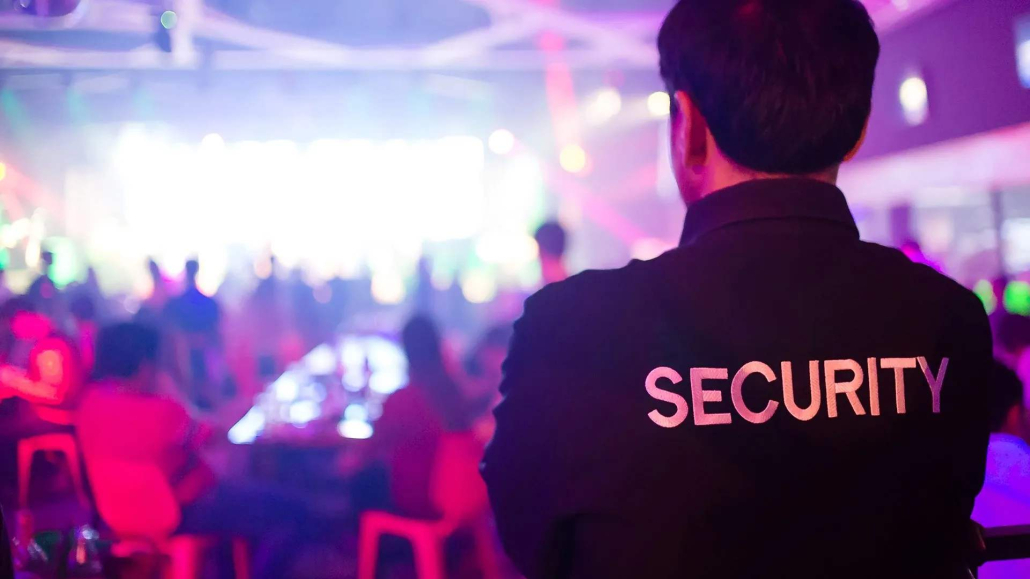
How to Hire Security for an Event in Kenya
-
Ideal for Guest Speakers, Celebrities, Diplomats
VIP protection services are tailored for high-profile individuals who face elevated security threats due to their public status. This applies to keynote speakers, political leaders, international guests, and entertainers at high-profile events. -
Close Protection Agents, Usually Armed and Professionally Trained
These professionals undergo intensive training in surveillance, firearms handling, evasive driving, risk assessment, and personal defense tactics. Many are ex-military or ex-police officers. -
Discreet and Personalized Security Coverage
Executive protection personnel typically operate in civilian attire to blend in, remaining close to the client without drawing attention. They assess crowd movements, monitor behavior, and pre-scout venues and travel routes. -
Coordination with Event Organizers and Law Enforcement
These specialists often liaise directly with organizers, local police, and venue staff to create layered security buffers, coordinate emergency exits, and plan safe arrival/departure strategies for their principals.
Different types of security personnel serve distinct roles during events in Kenya—from general safety and access management to law enforcement and VIP protection. Organizers should assess their event’s scale, risk level, and guest profile when choosing between private guards, police, or executive protection services. A layered security strategy that combines these elements is the best way to ensure peace of mind and event success. Peak Audio partners with licensed, vetted security providers to help ensure your event is both secure and professionally managed.
2. How to Hire Security for an Event – Step-by-Step
Planning a successful event in Kenya goes beyond décor and guest lists—it includes proactive safety measures. Whether it’s a private gathering or a large public concert, hiring the right security ensures not just safety, but also smooth event logistics and peace of mind for organizers and attendees. Here’s a comprehensive guide to walk you through the process of hiring event security in Kenya.
2.1 Assess Your Event’s Risk Profile
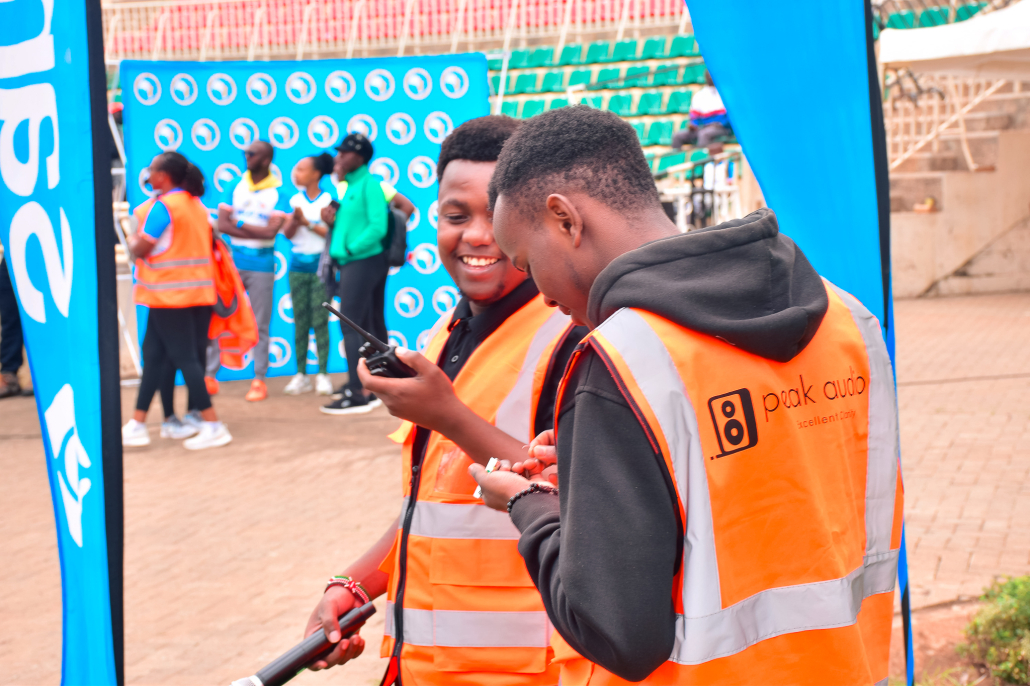
How to Hire Security for an Event in Kenya
-
Factors: number of guests, type of event (concert, political, corporate), venue, time of day
Begin by understanding your event’s security risks. A late-night music concert will have different needs compared to a corporate AGM. Factors like expected attendance, guest profile (e.g., VIPs or public officials), the event’s location, and timing (day vs. night) play a critical role in determining the level of security required. -
Consider the nature of your audience and activities planned
Events involving alcohol, large crowds, or open access typically require more extensive security planning. Similarly, if your event includes controversial topics or high-profile speakers, the risk of disruption increases, necessitating a stronger security presence. -
Evaluate past security concerns at similar events
Look at precedent—were there thefts, crowd issues, or health emergencies at similar events? Learning from previous occurrences helps you anticipate and plan for potential incidents. -
Establish your safety objectives and protocols
Identify what you aim to achieve—controlled access, perimeter security, traffic management, or VIP protection—and use those goals to inform your hiring decisions.
2.2 Determine the Number of Guards Required
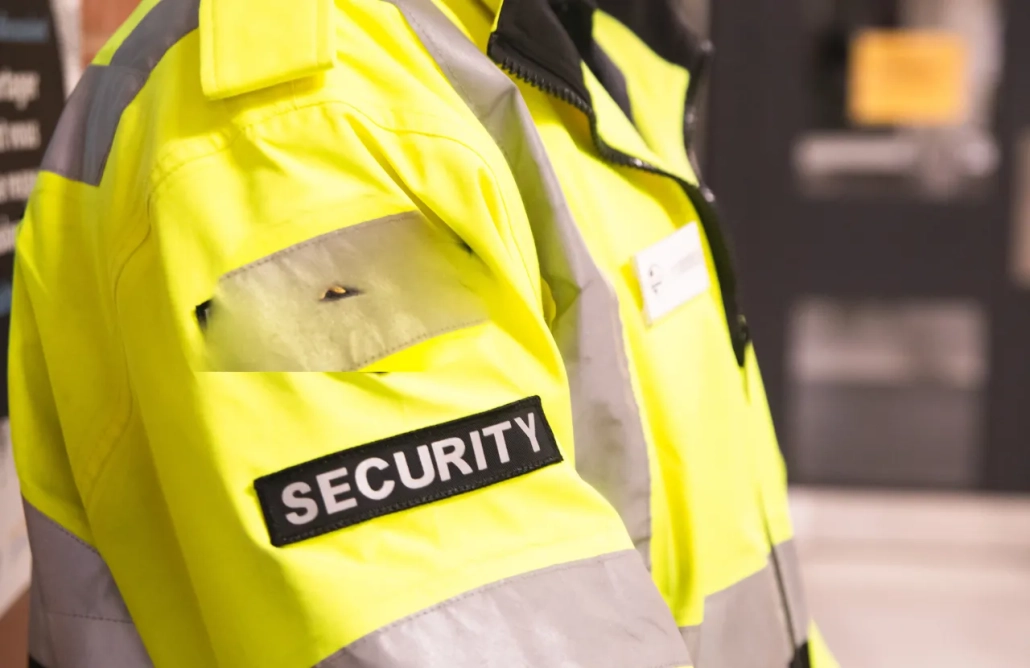
How to Hire Security for an Event in Kenya
-
Use the question: “How many security guards do I need for an event?”
The size and nature of your event should inform the number of personnel. Ask this question early to allocate your budget accurately and avoid under- or over-staffing. -
General guide:
-
1 guard per 100 guests for low-risk events
This rule of thumb applies to private gatherings, indoor seminars, and community events with limited access and lower threat levels. -
1:50 ratio for high-profile or high-risk events
For political rallies, public concerts, or large sports events, a higher guard-to-guest ratio is recommended to manage larger crowds, prevent incidents, and handle emergencies. -
Dedicated guards for entrances, exits, backstage, parking, and cash handling points
Assigning guards to specific locations ensures thorough coverage. Entrances need guards for access control, backstage for talent/VIP protection, and parking for vehicle monitoring.
-
-
Adjust according to event size, entry points, and venue layout
A sprawling outdoor venue will require more personnel than a compact hall, even with the same number of guests.
2.3 Contact Licensed Security Providers
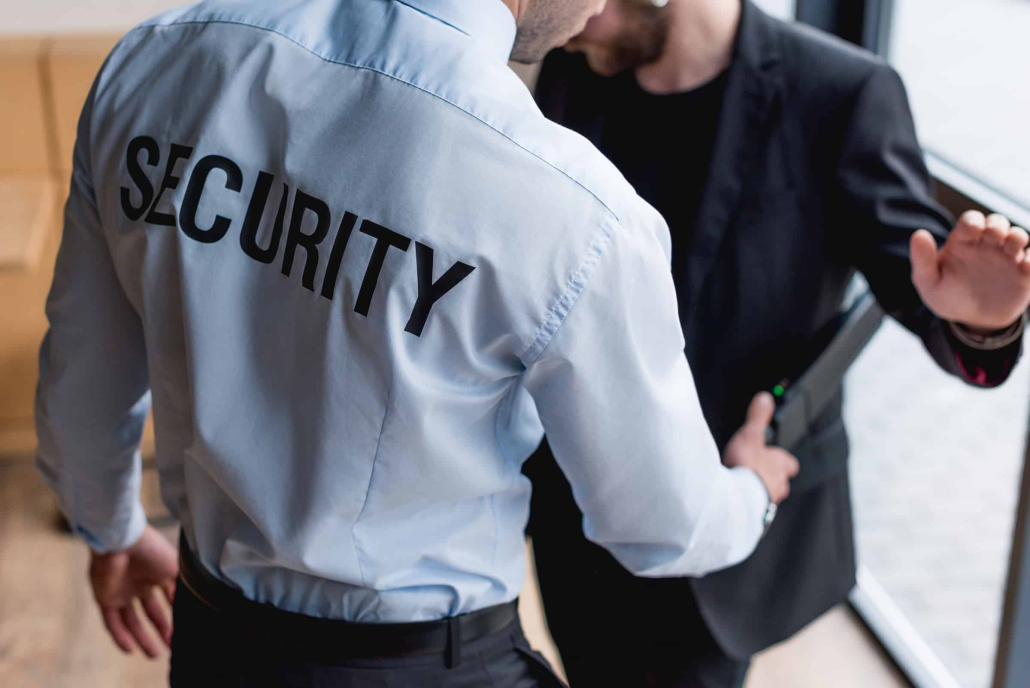
How to Hire Security for an Event in Kenya
-
Check credentials, insurance, licenses, and references
Always hire through licensed companies recognized by Kenya’s Private Security Regulatory Authority (PSRA). Verify they carry liability insurance to cover event-related incidents. -
Review their experience in similar events
A firm that’s secured political events or festivals will be more prepared for public interaction and media scrutiny. Ask for portfolios or references from past clients. -
Ask about uniformed vs. plainclothes guards
Depending on the event’s tone, you may prefer a discreet presence or a clearly visible security team. Make sure the firm can offer the right balance. -
Evaluate professionalism and communication
Your chosen security firm should be responsive, clear in communication, and open to site visits and briefings before the event.
2.4 Hire Based on Your Budget and Requirements

How to Hire Security for an Event in Kenya
-
Balance between safety needs and affordability
While security is non-negotiable, your budget will guide whether you need a full-service team or basic coverage. Discuss costs per guard, per hour, and any additional services like dog units or mobile patrols. -
Choose value over lowest cost
Avoid choosing providers based solely on price. Underqualified or underpaid guards may lack the training to de-escalate tense situations or handle emergencies professionally. -
Ask for flexible packages and breakdowns
Reputable providers offer tiered packages based on hours, event type, and roles required (static guards vs. response units). -
Plan for contingencies in high-risk events
Budget for backup personnel or overtime pay in case the event runs long or a situation escalates.
2.5 Coordinate with Police If Required
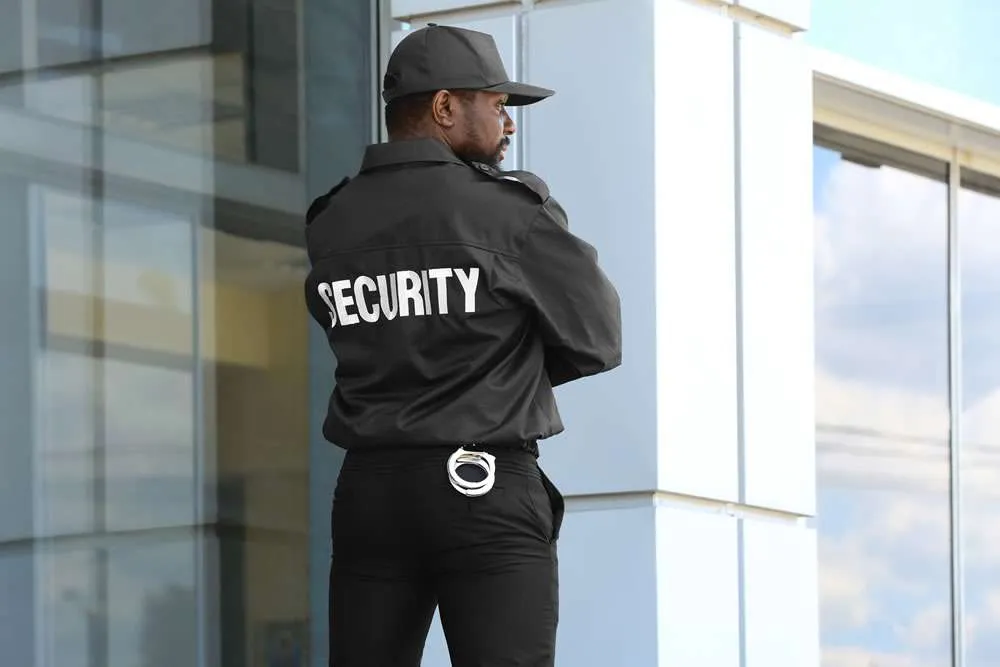
How to Hire Security for an Event in Kenya
-
For large or public events, police presence might be legally required
Events drawing large crowds, impacting traffic, or requiring road closures need Kenya Police Service involvement. Authorities may mandate minimum police deployment depending on risk level. -
Apply for police coverage in advance through your local station
Visit the local police station to notify them of your event and request uniformed officers. You may need to provide:-
Event program
-
Letter of intent or permit
-
Organizer contacts
-
Expected attendance
-
-
Work with the OCS to determine police deployment scope
The Officer Commanding Station will advise how many officers to deploy and the likely costs involved. Early coordination also helps you avoid permit delays or last-minute cancellations. -
Ensure police are briefed on the event layout and timelines
Just like your private security, police need clear instructions, venue maps, and communication lines with your security team and event management.
Hiring the right security for your event in Kenya starts with understanding your unique needs—size, risk, and budget. From private security guards to uniformed police officers, each layer adds protection and professionalism. By assessing your risk profile, estimating personnel needs, engaging licensed providers, and following legal requirements, you ensure your event is not only safe but successful. At Peak Audio, we work closely with trusted security partners and help clients coordinate a tailored security solution aligned with event goals and compliance requirements.
3. How Much Does It Cost to Hire Security for an Event in Kenya?
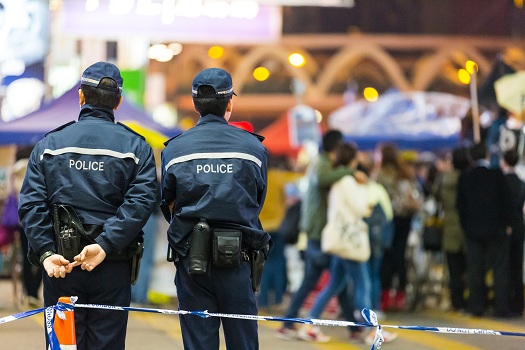
How to Hire Security for an Event in Kenya
Whether you’re hosting a high-profile corporate launch a church event or an intimate private gathering, budgeting for security is essential. The cost of hiring event security in Kenya can vary widely based on multiple factors, including personnel type, event risk level, duration, and whether police officers are involved. Below is a comprehensive look at the costs associated with hiring both private security and police for your event, plus key factors that influence overall expenditure.
3.1 Average Costs for Hiring Private Security Guards
-
How much does it cost to hire a security guard for an event?
On average, event organizers in Kenya can expect to pay between KES 1,500 and KES 3,000 per security guard per shift. This standard rate typically applies to unarmed guards working during the day or for events with a low to moderate security risk. -
Armed guards command higher fees due to training and licensing
If your event requires armed security, the cost can increase to between KES 3,000 and KES 6,000+ per guard per shift. These guards have specialized training and carry firearms, making them suitable for VIP protection or events with elevated risk. -
Overnight or extended events attract premium rates
Security services that run past midnight or require continuous coverage (such as multi-day festivals or overnight conferences) may cost more. Overnight rates typically increase by 20–30% to compensate for shift difficulty, staffing limitations, and night allowances. -
Other cost variables include uniform requirements and equipment
Security firms may charge additional fees for guards in branded or formal uniforms, or for guards equipped with communication radios, metal detectors, or body cams.
3.2 How Much Does It Cost to Hire Police for an Event?
-
Police presence comes with standard government-regulated fees
For large-scale or high-risk events, hiring police officers is sometimes legally required. While rates may differ by region, the average starts at KES 5,000 to KES 10,000 per officer per day. This includes uniformed presence and basic duties like crowd control and patrolling. -
Costs vary based on the type of unit, number of officers, and duties
Specialized units (e.g., the General Service Unit or Diplomatic Police) may command higher fees due to training and risk exposure. The number of officers deployed will be influenced by your event’s scale, expected guests, and security plan. -
Charges often include allowances for transport, meals, and logistics
In many cases, organizers are expected to cover operational costs for police deployed at their events. This may include transportation to the venue, meal stipends, and other logistics depending on the deployment terms set by the Officer Commanding Station (OCS). -
Rates may be negotiated depending on public benefit or NGO involvement
For charity events or public-interest programs, organizers may receive leniency or support through partnerships with local administration or police departments.
3.3 Factors That Influence Event Security Costs
-
Event Size and Duration
Larger events require more personnel and longer shifts. A 500-person event may need more than 10 guards on rotation, especially if it runs over several hours or days. -
Armed vs. Unarmed Personnel
The choice between armed and unarmed security significantly affects costs. Armed personnel come with licensing, risk premiums, and higher insurance requirements. -
Event Risk Level and VIP Attendance
If the event involves celebrities, government officials, or foreign dignitaries, you’ll need executive protection services. These come at a premium due to their specialized training and additional support equipment. -
Event Location and Travel Requirements
Security personnel based in Nairobi may charge extra if your event is in a remote area like Naivasha, Kisumu, or Mombasa. Costs may include transport, accommodation, or per diem allowances. -
Time of Day and Holiday Considerations
Events scheduled at night, over weekends, or during public holidays usually incur overtime rates. Security firms often include these premiums in your quote. -
Value-Added Services
Additional costs may apply for surveillance equipment, dog units, metal detectors, crowd barriers, emergency evacuation coordination, or first aid response.
The cost of event security in Kenya is influenced by a range of factors—from the number and type of guards required to the complexity of your event. On average, you can budget KES 1,500–3,000 per unarmed guard and KES 3,000–6,000+ for armed guards, while police services may cost KES 5,000–10,000 per officer per day. Always align your budget with the specific safety requirements of your event, and work with experienced providers who understand local laws, risk management, and operational planning. At Peak Audio, we help our clients not only source vetted security providers but also optimize their security spend while maximizing protection and peace of mind.
4. Event Security Planning Considerations
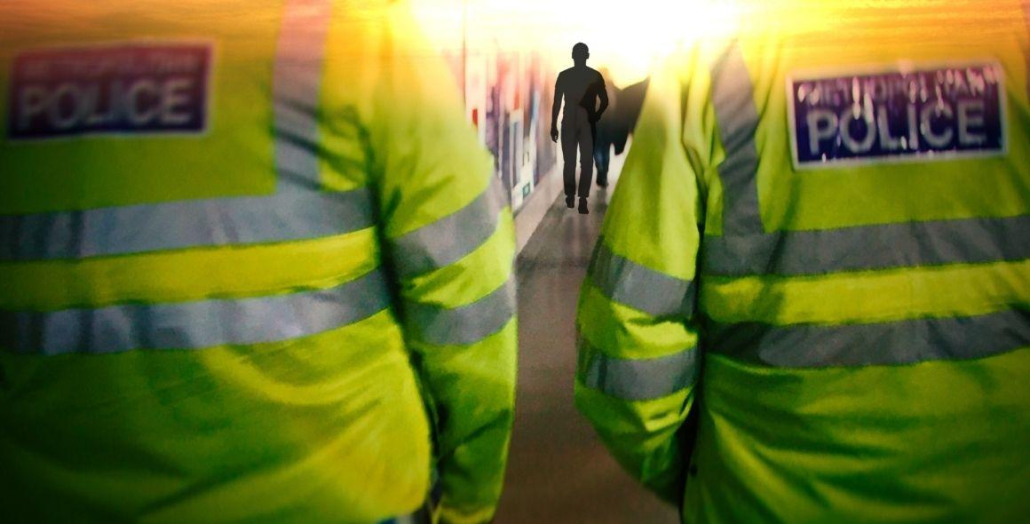
How to Hire Security for an Event in Kenya
Hiring the right personnel is only part of the equation—effective event security depends on meticulous planning and preparation. From analyzing venue architecture to managing crowd movement and emergency protocols, every security measure should be designed to prevent threats, manage incidents swiftly, and ensure guests feel safe without being inconvenienced. Below is a deep dive into the most crucial aspects of security planning for events in Kenya.
4.1 Venue Size and Layout
• Security guard positioning for visibility and quick response
The physical size of the venue determines the number of guards and how they should be stationed. Wide open spaces require strategic deployment along perimeters, entrances, stages, and high-traffic areas. Guards should always have line-of-sight coverage, be stationed near emergency exits, and have clear pathways to respond to incidents without obstruction. In venues with multiple levels or rooms, assigning zone-specific teams helps maintain situational awareness and ensures no area is left unattended.
• Use of CCTV, walkie-talkies, or Hikvision surveillance systems for coverage
Modern security planning integrates technology with manpower. Closed-Circuit Television (CCTV) systems offer real-time monitoring and evidence collection, while two-way radios (walkie-talkies) allow seamless communication among teams. For high-profile events or sensitive areas, Hikvision surveillance systems provide high-definition coverage, motion detection, and even facial recognition capabilities—critical for crowd analysis and identifying threats early. Proper tech placement is as important as having it; ensure cameras cover blind spots, exits, registration points, and backstage corridors.
4.2 Crowd Dynamics and Flow
• Managing entry points, queues, backstage access, and guest behavior
Understanding how people will move through your event is central to keeping things orderly. Entry points should be clearly marked and monitored to avoid bottlenecks or unauthorized access. Use stanchions or temporary barricades to guide queues and separate VIP or staff entrances from general access areas. Security guards must be trained in crowd control psychology—knowing when to de-escalate tension, how to give clear commands, and where to redirect guests in case of congestion.
For backstage and restricted areas, enforce access control using wristbands, badges, or QR-coded passes. Guards at these points should have updated guest lists or digital tablets with guest verification software to quickly confirm identities. Crowd control measures should also account for factors like:
-
Maximum occupancy per area
-
Expected flow from stage to food areas
-
Movement during breaks or entertainment sessions
• Anticipate flashpoints such as exits after main performances, alcohol service zones, or politically charged speeches, and plan accordingly with more staffing and visibility.
4.3 Emergency Procedures and Evacuation Plans
• Ensure your team has first aid, fire safety, and incident management protocols
An effective security strategy must account for emergencies—whether it’s a medical crisis, fire, electrical failure, weather-related issues, or public disturbance. This starts with a written emergency action plan (EAP) developed in coordination with venue managers, event organizers, and security providers.
Key components should include:
-
Evacuation routes mapped and clearly signed for different sections of the venue
-
Assembly points designated outside the venue
-
Fire extinguishers and firefighting points clearly marked and easily accessible
-
First aid stations staffed with trained personnel, ideally in multiple locations
-
Emergency contacts (e.g., local fire department, hospitals, police) pre-loaded in radios or emergency apps
-
Communication plan for alerting guests in case of evacuation (PA system, LED message boards, SMS alerts)
All hired security staff should be briefed before the event and undergo a quick run-through of emergency procedures. In large events, conducting a pre-event simulation or tabletop drill can help identify weak links in the response chain and build coordination across multiple teams.
Security planning is not just about hiring guards—it’s a science of spatial awareness, crowd management, and emergency readiness. At the core are three pillars: understanding the venue layout, anticipating crowd dynamics, and establishing clear protocols for emergencies. Whether you’re using walkie-talkies or AI-enabled surveillance, blending technology with strategic human deployment is key to keeping your event safe and professional. At Peak Audio, we work closely with licensed security firms and AV specialists to design intelligent event security systems that ensure your guests stay protected while enjoying the experience.
5. Questions to Ask Before Hiring Event Security
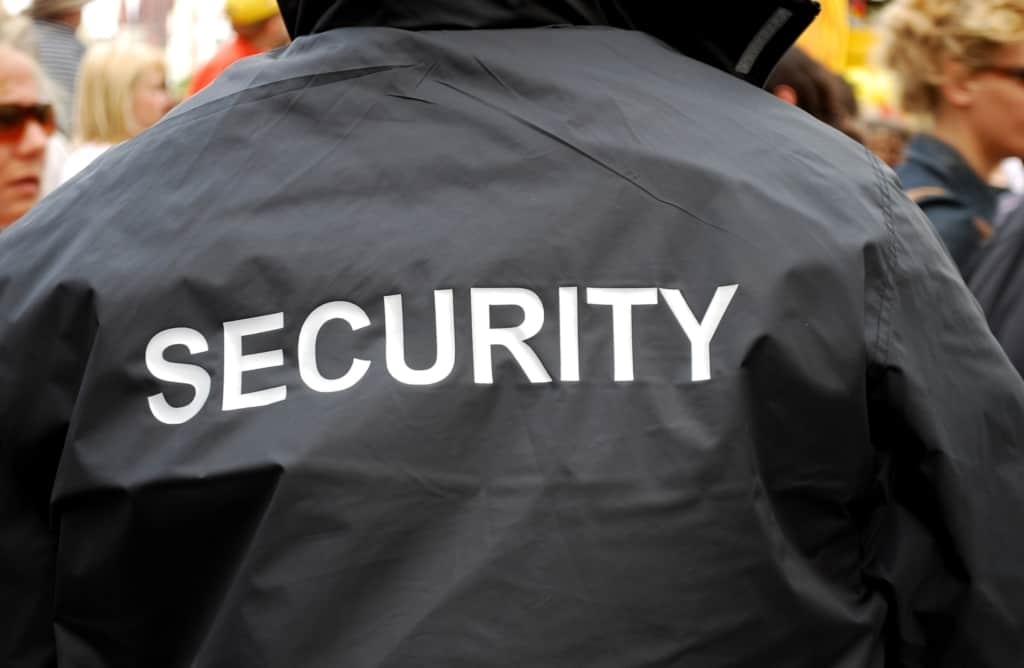
How to Hire Security for an Event in Kenya
Before committing to a security provider for your event, asking the right questions can make all the difference between basic crowd control and a well-executed protection strategy. Security is not just about presence; it’s about preparedness, experience, and coordination. The following questions help you evaluate a provider’s competence, flexibility, and fit for your unique event.
5.1 Are Your Guards Licensed and Trained?
-
Confirm licensing and certification under Kenyan law
Any reputable security firm in Kenya should operate under the licensing authority of the Private Security Regulatory Authority (PSRA) or similar regulatory bodies. Guards must be vetted, professionally certified, and cleared through legal and background checks. -
Ask about ongoing training standards and areas of expertise
Go beyond basic licensing—ask how often their guards receive refresher training. Topics should include crowd psychology, emergency response, de-escalation tactics, and communication skills. Specialized events like concerts, high-risk rallies, or conferences with VIPs require tailored competencies. -
Insist on guards trained in first aid and evacuation
The best guards can handle more than just access control—they are first responders in crisis. Confirm whether staff have basic first aid certification, fire safety knowledge, and have participated in simulated emergency scenarios. -
Request to see guard credentials and insurance cover
A legitimate firm will provide you with staff ID copies and be open about their public liability insurance and worker’s compensation coverage, protecting both your guests and your event liability.
5.2 Have You Handled Events Similar to Mine Before?
-
Look for relevant experience—not just general security work
Ask for examples of past events they’ve secured that match your type—be it a 1000-guest wedding, an academic conference, or a political rally. A good track record means they’ve anticipated challenges specific to your niche. -
Request client testimonials or case studies
Reputable companies often have testimonials from past clients, particularly for recurring corporate clients or NGO collaborations. Ask for references or links to previous work if possible. -
Assess their knowledge of your event environment
Whether it’s open grounds in Naivasha, a corporate ballroom in Nairobi, or a rural town hall, your security team should be familiar with logistics for your chosen environment. Experience in similar venues improves speed and accuracy in deployments. -
Gauge how adaptable they are to client-specific needs
The security team should be able to customize deployment, staffing numbers, and shift times based on your event flow and program schedule—not just apply a one-size-fits-all approach.
5.3 Can You Provide Both Uniformed and Plainclothes Personnel?
-
Understand the value of blending visibility and discretion
Some security roles demand high visibility—for instance, guards at entry checkpoints or stage areas. Others, like undercover personnel in the audience or near cash handling zones, require plainclothes staff to detect unusual behavior discreetly. -
Confirm staff can rotate between roles if needed
Professional firms can provide a mix of both uniformed and covert personnel and ensure they understand their specific roles. This flexibility is especially useful for events that require both deterrence and subtle surveillance. -
Ask about dress code flexibility
If your event has a particular dress code or aesthetic (like black-tie galas or white weddings), confirm whether guards can wear less conspicuous uniforms or attire that blends into the environment while still maintaining security effectiveness. -
Inquire about coordination protocols between visible and covert teams
For maximum efficiency, uniformed and plainclothes personnel should work in coordination. Ask whether the firm has communication protocols, shared check-in systems, or reporting tools that allow seamless information flow between the two.
5.4 Do You Offer Security Planning and Risk Assessments?
-
Verify if the provider does a pre-event site visit
Security planning starts long before the event day. Ask whether they offer a complimentary or paid site walkthrough to assess risk factors, determine blind spots, and align their deployment with your floor plan and event schedule. -
Expect a written security plan or deployment strategy
A professional security firm should submit a written plan that outlines where each guard will be stationed, what each shift looks like, entry/exit protocols, and emergency plans. This gives you oversight and helps integrate security into the event operations team. -
Ask if they collaborate with other vendors (e.g., AV or catering teams)
The best firms don’t work in silos—they liaise with your AV provider, venue managers, and logistics team to avoid conflicts during setup and breakdown, and to maintain safety throughout. -
Check whether they help identify potential risks and crowd pressure points
Risk assessment includes reviewing guest profiles, expected attendance, event type, and crowd dynamics. They should anticipate pressure points like entrances, restrooms, food service areas, and prepare accordingly.
5.5 How Do You Handle Emergencies or Crowd Panic?
-
Ask for real examples of emergency responses they’ve handled
Experience matters most in crisis situations. Whether it was a medical incident, guest altercation, or public safety threat, their response protocol can tell you how equipped they are for unpredictable events. -
Ensure guards are trained to de-escalate—not just enforce
The ability to calm agitated guests or diplomatically diffuse a conflict is often more valuable than physical intervention. Ask what de-escalation techniques they use and whether their guards have soft-skill training. -
Review their incident response and communication process
Confirm whether the team has radios or earpieces to communicate instantly, a designated team leader for coordination, and whether you’ll receive incident reports post-event. Fast, clear internal communication is essential to manage emergencies effectively. -
Inquire about evacuation planning and guest communication methods
In case of fire, stampede, or technical failure, the security provider should be able to assist with safe evacuation. Ask how they plan to guide crowds and whether they’ll work in sync with your AV team for announcements and directions.
Hiring event security goes far beyond booking personnel—it’s about finding a strategic partner that understands your event’s unique requirements, communicates transparently, and plans ahead for all possible scenarios. By asking the right questions—about training, experience, capabilities, and emergency handling—you ensure that your event is protected by professionals who are proactive, not just reactive. At Peak Audio, we help event organizers vet and align with trusted security firms that meet these standards, ensuring smooth coordination between AV, logistics, and security from start to finish.
6. Why Choose Peak Audio’s Event Support Team
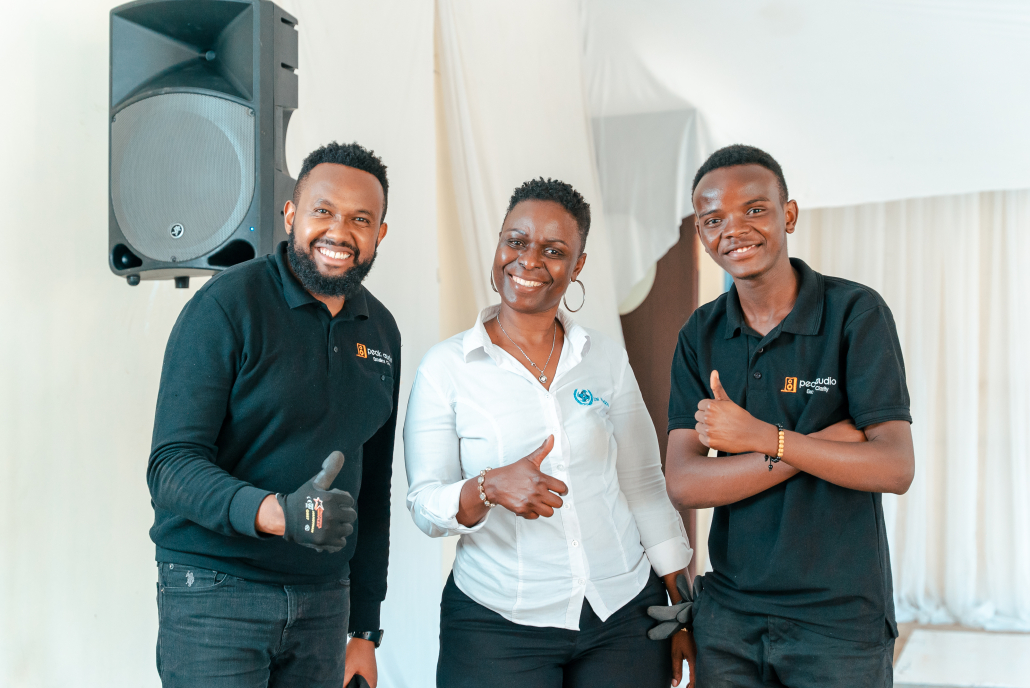
How to Hire Security for an Event in Kenya
In the world of event management, flawless execution depends on the synergy of multiple elements—security, AV systems, staging, and guest coordination. At Peak Audio, we believe that your peace of mind during the event is as important as the sound quality or lighting effects. That’s why we go beyond just technology and offer full-spectrum support, including expert coordination with trusted security providers. Here’s why event organizers across Kenya continue to trust Peak Audio as their go-to partner for seamless, secure, and professionally managed events.
6.1 Partnership with Top Security Firms
-
Access to vetted, professional guards through certified partners
We collaborate exclusively with PSRA-compliant, highly-rated security firms in Kenya. These partnerships grant our clients access to professional security guards who are not only licensed and experienced but also trained for event-specific duties such as crowd control, guest screening, and incident management. -
Pre-approved personnel who understand event dynamics
The guards we engage through our partner firms are familiar with different event formats—whether it’s a red-carpet gala, a corporate seminar, or a public festival. Their training aligns with Peak Audio’s own quality standards, ensuring safety is never an afterthought. -
Seamless coordination between AV and security teams
One of our strengths lies in intra-team integration. Our AV technicians and event setup crew work hand-in-hand with the security team to ensure entrances are well-lit and monitored, emergency exits are clearly marked, and technical zones are secured. -
Simplified vendor management through a single point of contact
Rather than juggling multiple vendors for AV, staging, and security, clients benefit from streamlined communication. We serve as your central coordination team, liaising with our security partners to ensure schedules, shifts, and roles are clearly defined.
6.2 Experience in All Event Types
-
Security coordination across Kenya’s diverse event landscape
From Nairobi’s high-profile diplomatic gatherings to intimate weddings in Naivasha, our support team has managed AV and security logistics for events of all scales and types. This breadth of experience makes us uniquely positioned to anticipate security needs depending on the event format, venue type, and guest profile. -
Corporate expos, AGMs, and trade shows
These events often involve high-tech setups and sensitive information, requiring synchronized protection of display areas, restricted access points, and secure backstage or storage zones. We understand these requirements and help implement them from day one. -
Weddings, parties, and private celebrations
Even smaller events deserve the same level of care. We ensure that guest lists are respected, VIPs are protected discreetly, and venue access is controlled—all without disrupting the joyful atmosphere. -
Public concerts, campaigns, and fundraisers
Large open-air or high-footfall events bring specific challenges, such as crowd surges, perimeter control, and emergency response readiness. We’ve supported organizers with on-ground coordination involving both uniformed and plainclothes security teams, always in sync with AV operators and MCs.
6.3 Scalable Packages Based on Your Event Size and Budget
-
Tailored support whether your event hosts 50 or 5,000 guests
Our support model is flexible. You don’t need a large security team or expensive infrastructure for every event. We scale our offering—number of guards, surveillance tools, entry points secured—based on your expected attendance, venue complexity, and nature of the gathering. -
From basic security presence to full surveillance integration
Need just two guards at the entrance and exit? Or do you require a full suite with mobile patrols, barricades, walkie-talkie coordination, and a CCTV monitoring station? We offer options across this spectrum, built around your needs—not a one-size-fits-all approach. -
Cost-effective bundles with full transparency
We respect budgets and help you avoid hidden costs. Our bundles include everything from manned security posts to coordination fees, ensuring you know exactly what you’re paying for. This clarity helps you stay within budget without compromising safety. -
Security that aligns with AV and event flow
Every element of your event—lights, sound, presentations, and guest transitions—should feel fluid. Our packages ensure that security measures don’t become a bottleneck but rather enhance flow by guiding guests, managing queues, and ensuring authorized access to technical zones or backstage areas.
Choosing Peak Audio means choosing a fully integrated event support experience. From event concept to breakdown, our coordination with Kenya’s top security providers ensures that your gathering remains safe, well-managed, and professionally executed. We bring together certified personnel, seamless AV-security coordination, and a flexible approach tailored to your event type and budget. With Peak Audio, you’re not just booking equipment or guards—you’re investing in a trusted partner who understands the full ecosystem of event success.
7. FAQs on How to Hire Security for an Event in Kenya
Hiring security for an event in Kenya involves more than just placing guards at entrances—it’s about understanding your event’s risk profile, complying with legal requirements, and ensuring guest safety from start to finish. Whether you’re planning a VIP fundraiser, a large public concert, or a private wedding, these frequently asked questions provide key insights to help you navigate the process.
7.1 What Type of Security Personnel Do I Need for My Event?
-
The type of personnel required depends on your event’s size, nature, and risk level.
For small private events like weddings or seminars, trained private security guards are often sufficient to manage access points and watch over personal property. -
For larger public events, especially those involving political figures, celebrities, or large crowds, armed police officers—approved by the Kenya Police Service—may be required by law.
-
VIPs, keynote speakers, or dignitaries may also require executive protection (close protection officers), who are often trained in surveillance detection, emergency response, and firearm handling.
-
Many events benefit from a mixed team of private guards for general coverage and a few specialists for high-risk zones or individuals.
7.2 How Much Does It Cost to Hire Security for an Event in Kenya?
-
Costs vary depending on the type and number of security personnel, the duration of the event, and whether it’s day or night coverage.
-
Private security guards typically charge between KES 1,500 to KES 3,000 per guard per day, depending on experience, uniform requirements, and responsibilities.
-
Police officers deployed through official permits may cost KES 5,000–10,000 per officer, with rates influenced by rank, risk level, and operational hours. These usually require coordination with your local police division (DCIO) and event permit office.
-
Close protection officers or bodyguards are more specialized and can cost KES 10,000–20,000 per day, especially if overnight accommodation, transport, or arms licenses are involved.
-
Peak Audio’s security liaison team helps provide realistic quotes and coordinate deployments based on your security budget and legal obligations.
7.3 Do I Need a Permit to Have Armed Security or Police at My Event?
-
Yes, in most cases involving armed security or uniformed police officers, you will need official authorization.
-
This involves applying for a Special Event Permit through the County Commissioner’s Office or relevant sub-county security desk.
-
The application should include:
-
The event program and venue
-
List of guests (especially if public figures are attending)
-
Estimated attendance
-
Request letter for police presence or protection
-
Copy of your event license or venue booking confirmation
-
-
Peak Audio can coordinate this process in partnership with your event planner or security company to avoid delays or compliance issues.
7.4 How Many Security Guards Do I Need for My Event?
-
The number of guards depends on the size, layout, risk profile, and duration of the event. General guidelines include:
-
1 guard per 50–100 guests for small or mid-sized events
-
At least 2–4 guards for entrances and exits
-
Additional guards for VIP protection, backstage areas, car parks, and emergency exits
-
-
For outdoor festivals or open-air concerts, more personnel may be needed to monitor crowd flow and patrol extended perimeter zones.
-
Your venue’s security requirements or the county government’s event policy may also dictate the minimum number of officers required.
7.5 Can I Use Volunteers Instead of Professional Security?
-
Volunteers can assist with tasks like ushering or guest coordination, but they should never replace licensed security professionals.
-
Security personnel must:
-
Be vetted and licensed under the Private Security Regulatory Authority (PSRA) in Kenya
-
Understand conflict de-escalation techniques
-
Have experience managing crowds, theft risks, and emergencies
-
-
Using untrained individuals as substitutes could expose you to liability issues, injuries, or property loss—and may void your event insurance coverage.
7.6 What Should I Look for When Hiring a Security Firm?
-
When evaluating a security firm, consider the following:
-
Licensing and registration with PSRA
-
Experience in event-specific deployments, not just residential or commercial guarding
-
Ability to provide incident reporting, walkie-talkie coordination, body scanners, or surveillance support
-
Access to insurance coverage in case of incident or negligence
-
Reputation and reviews from other clients or event organizers
-
-
Peak Audio maintains a vetted list of reliable security partners and can recommend trusted providers based on your needs and location.
7.7 When Should I Start Planning Event Security?
-
Security planning should begin as soon as your event date and venue are confirmed—ideally 3–4 weeks in advance for medium events and 6–8 weeks for large or sensitive functions.
-
Early planning allows time to:
-
Conduct a site security assessment
-
Apply for necessary permits
-
Design crowd control maps and evacuation plans
-
Coordinate roles between your event team, venue security, and hired professionals
-
-
Peak Audio can assist in integrating AV setups with security checkpoints (e.g., camera feeds, PA system alerts, or livestream monitoring).
Hiring security for an event in Kenya is a strategic and legal responsibility, not just an operational task. It ensures the safety of your guests, protects your equipment, and shields you from legal and reputational risks. Whether you’re working with uniformed police, private security, or executive protection units, it’s crucial to understand the process and costs—and work with vetted professionals.
Peak Audio helps coordinate full-service event security solutions in collaboration with reputable security firms, ensuring your event runs safely, smoothly, and within regulatory standards.
Secure Your Event with the Right Protection By Peak Audio
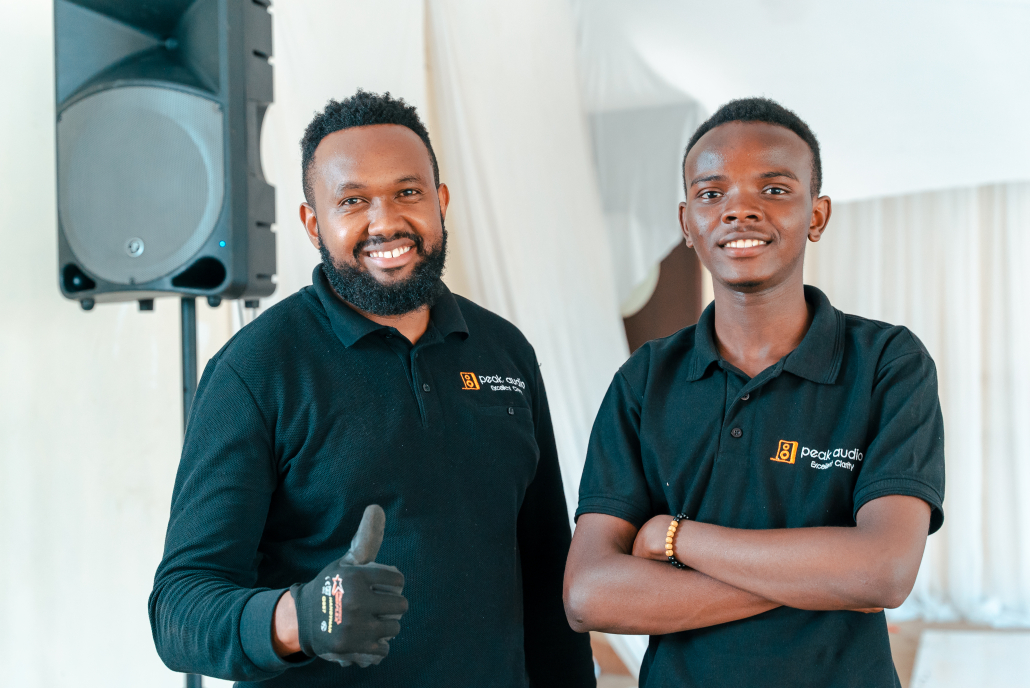
How to Hire Security for an Event in Kenya
Great events go beyond stunning visuals and immersive sound—they also prioritize the safety and comfort of every guest. Whether you’re organizing a private wedding, a corporate launch, or a high-traffic public event, having the right security measures in place ensures that everything runs smoothly from start to finish.
At Peak Audio, we don’t just handle lights and sound—we help you plan holistically. From guiding you through what kind of security personnel your event requires to helping you understand how much it costs to hire security for an event in Kenya, our team is ready to support you every step of the way. We work with licensed, experienced security partners to ensure safety never takes a back seat.
Don’t leave safety to chance. Whether you’re planning your first event or managing a national conference, let Peak Audio help you bring peace of mind and professionalism to every detail. Contact us today to start planning a secure, successful event in Kenya.
Leave a Reply
Want to join the discussion?Feel free to contribute!